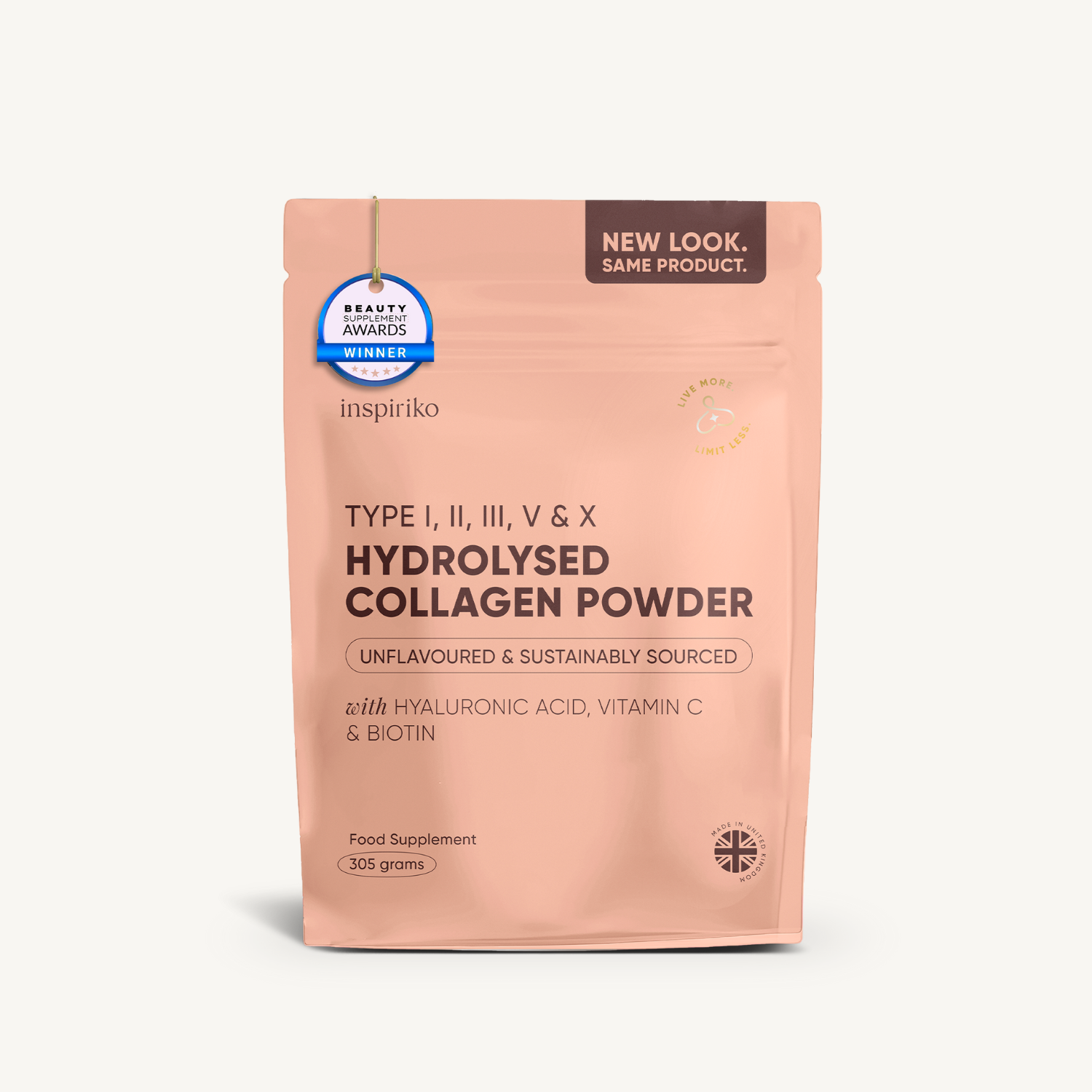Magnesium is an essential mineral that plays a key role in many different bodily functions. It can help regulate blood pressure and heart rate, maintain healthy bones, control muscle contractions, and even improve mood. Magnesium also has some other surprising benefits for women!
A research by Nutritional Insight Limited notes that, “UK women in particularly are vulnerable to micronutrient shortfalls from food sources alone.” (6) Women are usually more prone to magnesium deficiency for various reasons, like hormonal changes during pregnancy or breastfeeding to the increased need for this mineral during menopause or monthly cycles. So why is it so important to keep your magnesium reserves replenished? Let's take a look at the 5 main reasons why women need magnesium, especially during menopause.
1- Magnesium Can Reduce PMS & Perimenopause Symptoms
One of the most significant health benefits of Magnesium to women is its ability to reduce PMS and perimenopause symptoms. According to Doctor Lala, it happens because Magnesium affects hormone levels, specifically estrogen, which helps regulate these hormones in women's bodies (3). Lack of dietary intake can increase mood swings, irritability, anxiety, insomnia, and menstrual cramps.
Magnesium is also helpful for maintaining healthy bones and teeth, especially in women’s health deficient or in a risk of deficiency due to hormonal changes during pregnancy, menopause, and oral contraceptive use.
According to NHS, it is recommended that women take about 270 mg per day to help regulate these symptoms or to reduce their frequency or severity. NHS also notes that taking magnesium supplements in high doses of 400 mg and more for a short time can cause stomach upset and even diarrhoea (so choose your supplement wisely!)
Good levels of magnesium can be achieved by eating foods high in Magnesium, such as leafy green vegetables, legumes, some fish, nuts, and seeds. Using a supplement may also be needed to supplement the recommended daily dosage.
2- Magnesium Reduces Stress and Anxiety Level
The second reason Magnesium is beneficial for women's health is that it helps to reduce stress and anxiety. Magnesium plays a role in serotonin production and contributes towards reducing the risk of low mood, mood swings & irritability. Serotonin triggers happiness levels as well as helping regulate appetite, sleep patterns, and libido.
The University of California did a study that showed that a magnesium deficiency could cause or worsen depression in adults. The Magnesium supplement was more effective than two types of antidepressant medications used on patients who suffered from depression. Research also suggests that people that are deficient or have a high risk of deficiency, might be at a higher risk for developing depression and anxiety.
Magnesium can lower levels of cortisol, a hormone that can create high levels of anxiety. Supplementing with Magnesium before stressful situations will help you feel calmer and less anxious about what is happening around you (6).
When your body starts to produce too many stress hormones such as adrenaline or cortisol, it first uses up all the Magnesium from the cells. This leads to a decrease in energy production, leading to feelings of anxiety and stress - both mental and physical.

3- Magnesium Helps You Get a Better Night's Sleep
An estimated 1 in every 3 people in UK (especially aging population) have trouble sleeping every night. Along with reducing cortisol levels, taking magnesium before bed will help you feel more relaxed at night and allow you to get a better night's sleep. It also contributes to reducing stress-related inflammation in the body which often is a root cause for making it difficult to get a good night's rest or stay asleep for long periods.
When you're deficient in Magnesium, your adrenal glands will be overworked because they are trying to produce more adrenaline than normal to compensate for what your body is lacking.
4- Magnesium helps suppress Migraine and Headache Pain
If you suffer from chronic headaches or migraines, it may be due to a magnesium deficiency. People who are deficient in this mineral often experience muscle cramping and high blood pressure leading to increased risk of headaches & migraines. Magnesium is water-soluble, which means that the body cannot store reserves like other minerals such as calcium.
A study showed that Magnesium is an effective pain reliever for people suffering from chronic headaches without inflaming any other neurological conditions such as migraines or cluster headaches (4). One study even found that regular intake of magnesium reduced the frequency of migraine attacks by over 40%.
Therefore, it is important to make sure you are getting appropriate amounts every day through magnesium-rich foods and supplements like magnesium glycinate.

5- Magnesium Supports Bone Health & Muscle Function
Magnesium is known above all for its function in our muscles. All our muscles need magnesium so they can relax again after physical stress. Therefore, magnesium deficiency quickly manifests itself in nightly calf cramps. Approximately 60% of magnesium is stored in your bone and plays a crucial role in preventing osteoporosis. In the bones the stored magnesium contributes to bone stabilization and to bone growth and mineralization. If there is a magnesium deficiency, important functions can no longer be carried out and diseases like osteoporosis can worsen.
During menopause, estrogen levels decline, leading to a spike in bone loss. As a result, bones are being broken down at a faster pace than they are being rebuilt, leading to weakened bones. Getting more magnesium from foods or food supplements might help older women improve their bone mineral density and lower the levels of osteoblast activity (bone loss).
How to Get the Benefits of Magnesium
Although most of our magnesium intake comes from plants via the food we eat, modern agricultural methods and a diet that’s high in processed foods, caffeine and alcohol mean the amount of magnesium we get and the rate at which we can absorb it is reduced.
Your best option is to take a magnesium supplement as part of a balanced diet, and in conjunction with other nutrients which are necessary for the absorption process, such as vitamins D3 & B6 and minerals like Zinc that improve magnesium’s effectiveness. If you are unable to get Magnesium through your diet, you should talk to a doctor about taking supplements.

Magnesium is an essential mineral that every woman needs to be aware of when maintaining good health. It's so necessary for the body for so many different functions, from regulating your heartbeat and blood pressure levels to giving you more energy and helping improve brain function by both improving memory retention as well as increasing intelligence! And if all of that isn't enough, it might also even help you sleep better.
Many women are not getting enough Magnesium, and as such, they should supplement their diets with this nutrient to ensure optimal wellness.
FAQs
What type of magnesium is best absorbed by the body?
Can magnesium help with heart health during menopause?
Are there any foods that can naturally boost magnesium levels?
Related Products
References for the blog
-
Sleep Fact Statistics
https://www.sleepfoundation.org/how-sleep-works/sleep-facts-statistics -
The role of magnesium in hypertension and cardiovascular disease
https://pubmed.ncbi.nlm.nih.gov/22051430/ -
Magnesium and the menstrual cycle
https://helloclue.com/articles/cycle-a-z/magnesium-and-the-menstrual-cycle -
Magnesium in headache
https://www.ncbi.nlm.nih.gov/books/NBK507271/ -
What to Know About Magnesium and Your Leg Cramps
https://www.healthline.com/health/magnesium-for-leg-cramps -
Boost Mood & Beat Stress with Magnesium
https://www.cleaneatingmag.com/clean-diet/general-health/magnesium-for-stress-mood-sleep/ -
Micronutrient Intakes of British Adults Across Mid-Life: A Secondary Analysis of the UK National Diet and Nutrition Survey
https://www.ncbi.nlm.nih.gov/pmc/articles/PMC6060686/





